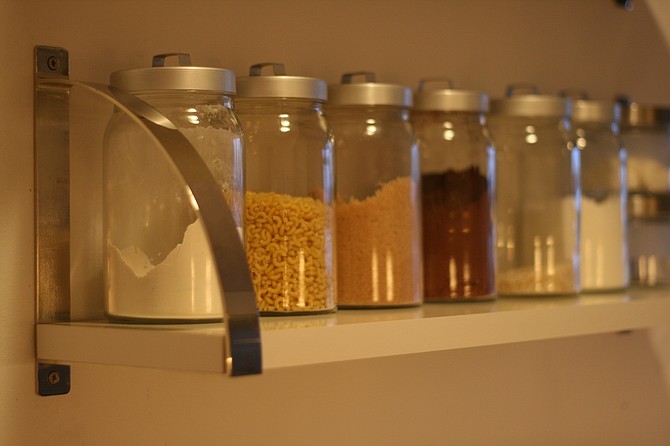Organizational tools can help you maximize the space in a small house, especially in the kitchen. Photo courtesy Flickr/Prettyinprint
Until last December, I managed to escape the brunt of adulthood's challenges. That all changed when my sister, Emily, and I moved into a small house in Pearl.
I'll be the first person to admit that it's not the greatest house in the world. It has some obvious water damage. When we moved in, we had to replace the back door because the bottom was warped. One burner of the stove doesn't work, and the oven looked like it hadn't been cleaned in months, if not years.
But, with a little elbow grease and some cash, Emily and I have managed to turn the house into a nice place to live, at least temporarily. I don't know all there is to know about house maintenance, but I can share a few tips and tricks that helped me when I moved in.
- Get lots of organizational tools. Even if it's obvious, it needs to be said. It helped me out a great deal to have a small hanging shelf organizer to put my shoes in, and a shelf on top of my closet to store my books and movies. I have little metal hooks on the wall behind the stove so I can hang my cooking utensils, and I maximized kitchen space by keeping many of my baking tools and equipment in a baker's rack my mom gave us. I also keep many of my baking goods, such as flour and sugar, in Mason jars.
- Fix what you can, and let go of what you can't. When you rent—or buy—a new house, you get what you pay for. With our incomes, we couldn't afford an expensive house, so we got what we could. Over the last few months, I've cleaned the oven (see below on how to do that), we put rugs over the concrete floors, replaced cabinet linings and began using the other stove burners, which work just fine. I don't have the money or the time to fix water damage or the knowledge to repair the stove, but as long as I keep up with what I can, the house is a nice little place to live.
- Always measure. From buying a couch to hanging shelves and artwork, it's a common mistake for new homeowners to rely on guesswork. That often leads to ill-fitting furniture and less than sturdy storage for books and photos. Using a tape measure and a level can save time and money.
- Don't use a dirty oven. I know from experience that an oven caked in grease, soot and grime is dangerous. In general, I'm not a huge fan of using chemical-laden, heavy-duty cleaning products because they make me sneeze and are bad for the environment, but I make a few exceptions, oven cleaners among them (of course, I am open to trying a more natural method). I recommend buying self-cleaning oven cleaners because they work on both self-cleaning and regular ovens.
Don kitchen gloves and cover every single heating coil with newspaper or aluminum foil (for regular ovens only) before spraying the cleaner. Once that's done, hold the can upright and spray each surface individually, keeping the can a few inches away from the oven. Close the oven door, put a towel on the floor to catch any residue, and let the cleaner work overnight. The next day, take the newspaper off and wipe down the oven with a damp rag.
When you're done, sweep up any residue. One tip I've found helpful is to make sure, through this entire process, to wear clothes you don't mind getting greasy.
If you have any tips for living in a new house, share them with JFP readers at jfp.ms.


